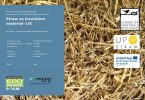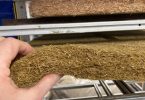Due to increasing government support for renewable energy in combination with high fossil fuel prices and environmental concerns, demand for wood pellet heating is rising all over Europe. Despite the rapid growth in wood pellet heating, the suitability and usability of wood pellet boilers in domestic settings has received relatively little attention compared with either alternative renewable heating technologies or with commercial applications of biomass heating. This article brings together the fragmented literature on wood pellet heating, and the application of this heating type in domestic settings, with a particular focus on assessing the suitability of wood pellet heating for low-income households who are not connected to the natural gas network.
The main advantages that have been identified include avoidance of significant levels of CO2 emissions, a potential reduction in heating costs, and increased comfort. However, it is clear that a number of potential risks exist at all stages of the supply chain, and that wood pellet heating has a heavy reliance on the perfection of design and maintenance for optimal performance and safety, both in terms of pellets and boilers. Furthermore, the capital cost associated with wood pellet heating is found to be a key deterrent to uptake. It is acknowledged that – for some specific households who are able to accommodate the regular maintenance and manual labour associated with a wood pellet boiler – domestic wood pellet heating can be a viable alternative to fossil fuel systems. At the present time, however, it is concluded that wood pellet boiler systems are not especially suited to application in domestic settings due to the range of end-user problems that can occur, concerns about pellet supply and pricing, and maintenance requirements. There is, however, considerable potential for wood pellet fuel to be utilised in district heating networks.
Authors: Thomson, Harriet; Liddell, Christine; Feb 2015
Link: http://linkinghub.elsevier.com/retrieve/pii/S136403211400940X







